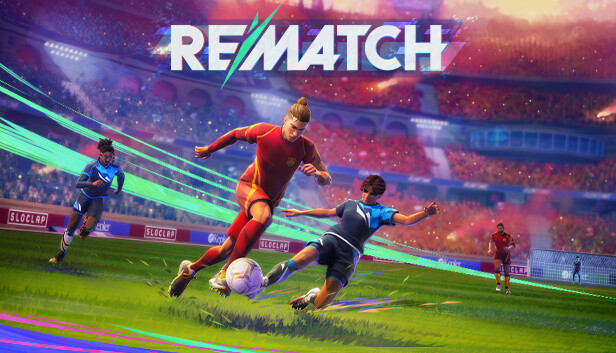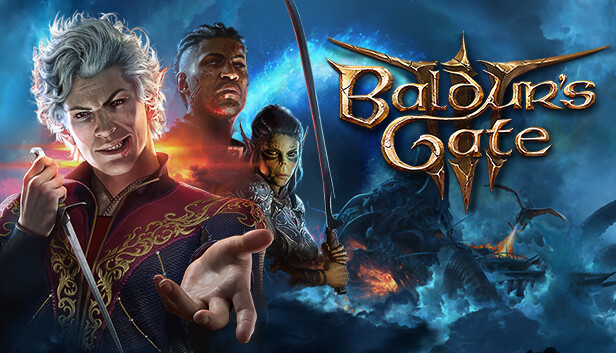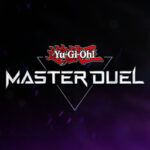Advertisement
Popular Now
Rematch, the arcade-style 5v5 football game developed by Sloclap, burst onto the scene on June 19, 2025, with its thrilling third-person perspective and skill-driven gameplay. Lauded for its innovative approach to football gaming, Rematch has drawn comparisons to Rocket League for its chaotic, fast-paced matches. However, beneath its vibrant visuals and addictive gameplay lies a persistent issue that has frustrated players since its beta phase: server instability. This article delves deeply into the server-related problems plaguing Rematch, exploring their origins, impact on gameplay, community reactions, and Sloclap’s efforts to address them. With insights from recent Rematch reviews and technical analyses, we’ll uncover why these issues persist and what they mean for the game’s future.
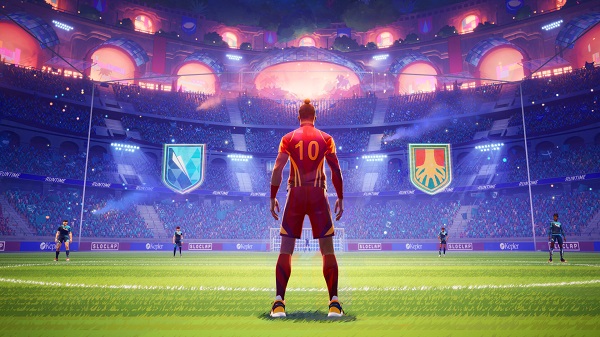
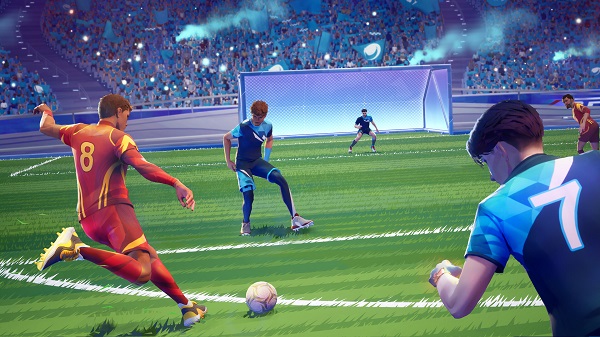
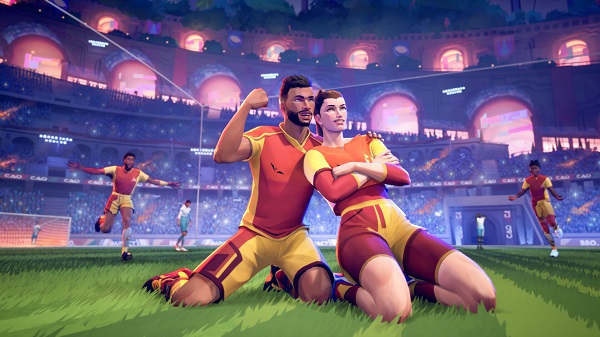
Pre-Launch Hype and Early Server Concerns

Beta Phase Signals Trouble
During Rematch’s closed beta in April 2025, players were captivated by its fresh take on football, with over 150,000 participants on Steam alone. However, server issues emerged early. Players reported lag, desync, and crashes, with some matches rendered unplayable due to the ball teleporting or controls failing. A Steam Community post highlighted a workaround—deleting the Runtime folder to fix crashes—but these were bandaids for deeper problems.Technical Ambitions vs. Reality
Sloclap’s ambition to create a seamless online experience for Rematch was evident, drawing from their experience with Absolver’s online tech. However, the transition to a high-intensity, real-time 5v5 game strained their infrastructure. Beta feedback pointed to inconsistent server performance, particularly in regions like EU and Asia, where packet loss was rampant. These early signs suggested that Rematch’s server architecture wasn’t ready for the scale of its player base.Launch Day Chaos: Server Overload
Early Access Nightmares
Rematch’s Early Access launch on June 17, 2025, for Pro and Elite edition pre-orders was marred by server overload. Within 24 hours, the game hit one million unique players, overwhelming Sloclap’s infrastructure. Players reported matchmaking times exceeding two minutes, frequent disconnects, and lag spikes that disrupted critical moments, like shots or saves. Social media posts on X echoed this frustration, with users like @thegamerwebsite calling the game “unplayable in some servers.”Specific Issues Reported
The launch revealed several server-related problems:- Desync: The ball would appear stuck for most players, only to teleport when touched, disrupting gameplay flow.
- Control Lockouts: Some players loaded into matches with unresponsive controls, forcing them to restart the game.
- Packet Loss: High upload packet loss in laggy servers caused stuttering and frame drops, especially in solo queues. These issues, present in the beta, persisted at launch, suggesting insufficient pre-release optimization.
Technical Breakdown: Why Servers Struggle
Netcode Limitations
Rematch’s netcode, responsible for synchronizing player actions across servers, has been a weak link. Unlike Rocket League, which uses a robust client-side prediction model, Rematch’s server-authoritative approach struggles with high-latency connections. This leads to desync, where the server and client disagree on the ball’s position, causing teleportation. A Steam user noted, “The ball can teleport on the field… their netcode is not so good.”Server Capacity and Regional Issues
Sloclap’s server infrastructure appears underprovisioned for Rematch’s global player base. Regions like EU and Asia face higher latency due to fewer dedicated servers, as reported by a French player on X experiencing lag when playing duos on the same connection. Additionally, the lack of crossplay at launch exacerbated matchmaking delays, as players were siloed by platform, further straining server queues.Physics-Based Gameplay Strain
Rematch’s physics-based ball mechanics, praised for their tactile feel, demand precise server synchronization. Every kick, pass, or interception requires real-time calculations, increasing server load. When servers lag, these calculations falter, leading to glitches like the ball passing through players or goalposts, as noted in Rematch reviews by PC Gamer.Impact on Gameplay Experience

Competitive Integrity Compromised
Server issues undermine Rematch’s competitive modes, particularly ranked 5v5. Lag spikes during crucial moments, like a goalkeeper’s dive or a last-second shot, can decide matches unfairly. Game8’s review noted bugs where opponents gained possession after scoring due to desync, frustrating players aiming for high ranks. This erodes trust in the game’s fairness, critical for an esports-aspiring title.Solo Queue Frustrations
Solo players suffer most from server instability, as Rematch reviews highlight. Random teammates often exacerbate issues by failing to coordinate, and lag makes it harder to compensate for poor teamwork. Loot Level Chill described solo queue as “miserable” when paired with uncooperative players, a problem worsened by stuttering servers. Long matchmaking times, sometimes up to 30 minutes for ranked modes, further deter solo players.Community Reactions: From Hype to Disappointment
Vocal Frustrations on Social Media
The Rematch community, initially enthusiastic, has grown vocal about server issues. On X, @playswave_com criticized “lag issues” that “mar the experience,” while @RuhRoee lamented the $30 price tag, citing long matchmaking times as a reason to refund. Reddit’s r/Rematch saw posts like “Way too ‘Early Access’” detailing desync and control lockouts, reflecting a sense of betrayal among beta testers who expected better.Mixed Rematch Reviews
Rematch reviews reflect this divide. PC Gamer gave it a “Strong” rating but acknowledged “bugs and server desync” that “undercut integrity at crucial moments.” GameSpot called it “thrilling” yet “frustrating” due to technical issues, while TrueAchievements labeled it a “rushed release” spoiled by servers. Despite a 75/100 average on OpenCritic, the consensus is that server problems overshadow the game’s potential.Sloclap’s Response: Patches and Promises
Immediate Hotfixes
Sloclap acted quickly post-launch, releasing patches 1.200.006 (June 21) and 1.200.007 (June 23) to address critical bugs. These fixed issues like the ball desyncing after hitting goalposts and improved server stability. However, Rematch reviews note that crashes and lag persist, suggesting deeper architectural flaws. Sloclap’s transparency, detailed in Steam Community posts, has earned some goodwill, but players demand faster progress.Crossplay and Long-Term Plans
The absence of crossplay, a promised feature, has compounded server issues by fragmenting the player base. Sloclap apologized, citing “unforeseen technical complexities,” and prioritized crossplay alongside lag fixes. They’re also developing test servers to trial new features and planning a tournament system, but these won’t address immediate server woes. The community remains cautiously optimistic, awaiting a “precise deadline” for crossplay.Comparison to Other Arcade Sports Games
Rematch vs. Rocket League
Rocket League, often compared to Rematch, launched with server issues in 2015 but resolved them through robust netcode and scalable infrastructure. Rematch’s server-authoritative model, while precise, lacks Rocket League’s predictive smoothing, making lag more noticeable. Rocket League’s crossplay from day one also ensured shorter queues, a lesson Rematch could learn from.Lessons from Absolver
Sloclap’s Absolver faced similar online issues at launch, with lag and disconnects hampering its multiplayer. While patches improved Absolver, Rematch’s larger scale and real-time demands expose Sloclap’s inexperience with high-concurrency games. Rematch reviews suggest the studio underestimated the challenge of transitioning from brawlers to sports.Economic and Strategic Implications
Pricing Backlash
Rematch’s $30 price tag has fueled criticism, as players like @RuhRoee argue that server issues don’t justify the cost, especially after a free beta with similar problems. The lack of a free-to-play model, unlike Rocket League, limits player retention, as long matchmaking times deter new buyers. Sloclap’s monetization, focused on cosmetics, is fair but feels tone-deaf when core gameplay falters.Esports Ambitions at Risk
Rematch’s esports potential, highlighted by its skill-based mechanics, hinges on reliable servers. Current issues make competitive play unreliable, as lag can nullify skill. Sloclap’s planned tournament and leaderboard systems are promising, but without stable servers, Rematch risks losing its competitive edge to titles like Rocket League or EA Sports FC.Player Workarounds and Community Efforts

Temporary Fixes
Players have shared workarounds to mitigate server issues, such as:- Deleting Runtime Folder: Fixes crashes and control lockouts, as posted on Steam.
- Switching Regions: Some EU players report better stability on NA servers, though latency increases.
- Playing 3v3: Less server-intensive than 5v5, with shorter matchmaking times. These community-driven solutions highlight players’ dedication but underscore Sloclap’s failure to deliver a polished experience.











